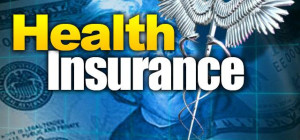 No one should have to pay for medical services not received. There are ways to dispute incorrect medical coding and billing and to decrease medical costs. Knowing what to do, what to look for and where to find it takes the mystery out of decreasing medical costs and disputing incorrect charges.
No one should have to pay for medical services not received. There are ways to dispute incorrect medical coding and billing and to decrease medical costs. Knowing what to do, what to look for and where to find it takes the mystery out of decreasing medical costs and disputing incorrect charges.
1. Request In-network Providers
For those who have insurance requiring them to stay in-network to receive the highest benefits possible, remember that just because the hospital or clinic is in the network does not mean that all of its staff will be. Ask for treatment from participating providers. Even if none of the staff is in-network, the fact that this request is in the file could help with negotiations to decrease the billed amount. Sometimes medical facilities will agree to accept an insurer's in-network reimbursement rate. This can decrease the bill substantially.
2. Always Read the Explanation of Benefits (EOBs) Sent by the Insurance Company
These documents contain information related to each medical bill submitted to the insurance company.
The EOB Details:
- how much the insurance company paid.
- the amount that the insured is responsible for.
- how much the insured saved by using an in-network provider.
3. Ask for Less Expensive Tests
If possible, request less expensive testing as long as the same results are obtainable. For example, if magnetic resonance imaging (MRI) is ordered, a less expensive cat scan (CT) may be a good substitute.
4. Request an Itemized Bill
An itemized bill offers the ability to view each charge independently.
5. Look for Errors on Medical Bills
While it is not unheard of for an individual to check a restaurant or grocery store receipt for errors, it seems that few people take the time to review medical bills. The Medical Billing Advocates of America found that nearly eight out of 10 healthcare service bills have errors. All Americans need to become proactive and review their medical bills to ensure they are only paying for the services received. Should a discrepancy be found, detail all disagreements in writing and mail them by certified mail to the medical establishment’s billing department. Taking the time to do this could save hundreds, or even thousands, of dollars.
6. Get a Written Explanation
When there is a discrepancy concerning a medical bill, ask for a written explanation of the charge from that medical facility or physician's billing department.
7. Take Detailed Notes and Keep Documentation
Write down all the information related to conversations with staff members pertaining to the incorrect medical bill. When, who, what and why are great questions to answer in these notes. By doing this, any questions asked about previous contact with the medical facility’s staff can be answered accurately. Also, keep records of all written correspondence.
8. Watch Out for Balance Billing
This practice is illegal in most states. Balance billing is when an in-network provider receives the agreed upon payment from the insurance company and bills the patient for the outstanding balance on the account. In a situation such as this, the insured needs to contact his insurance company. Jane Cooper, the chief executive of Patient Care, a patient advocate firm in Milwaukee, states that the insurance companies are the best enforcers of the balance billing laws.







